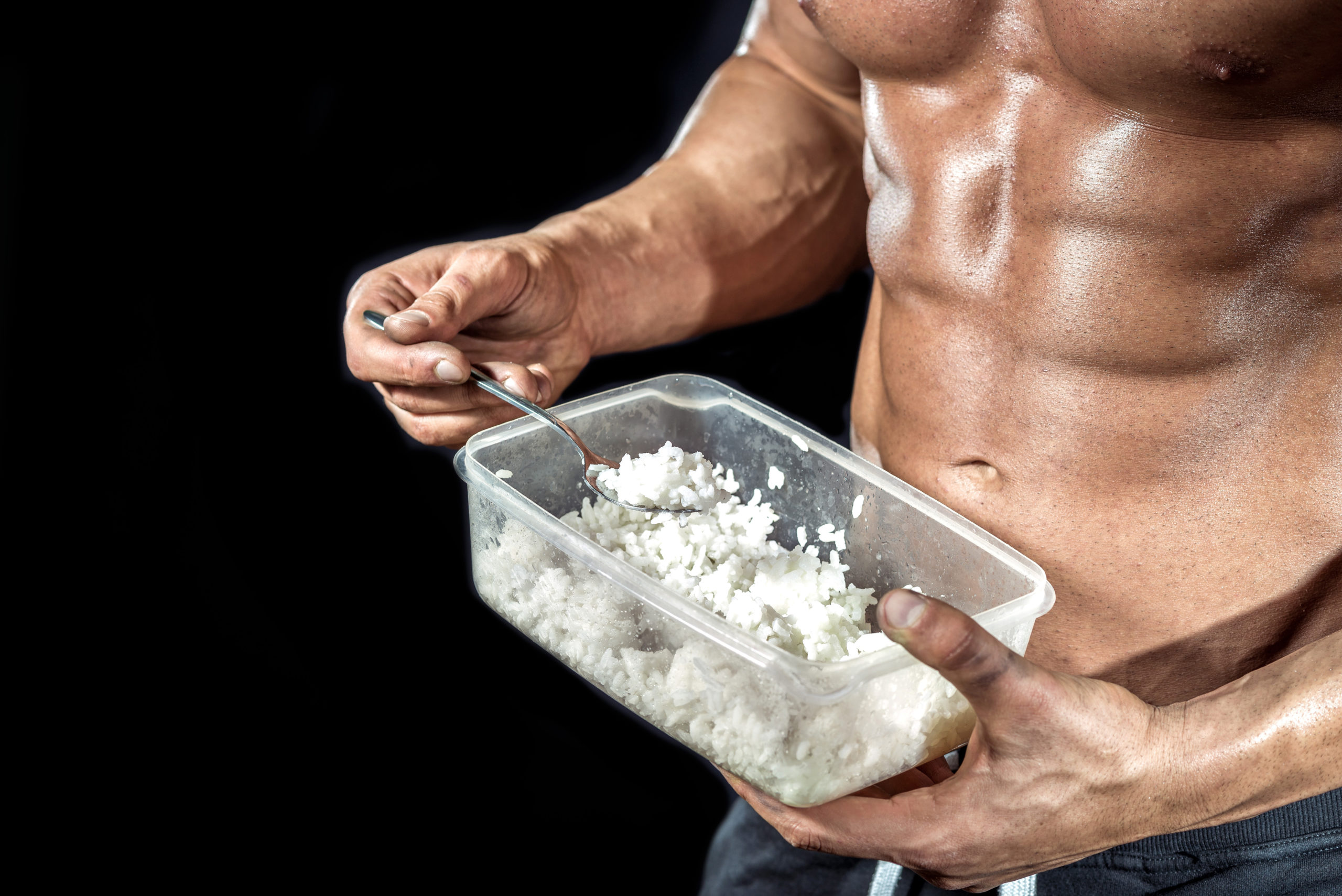When speaking of nutrition strategies, low carb and high carb diets have been getting most of the attention. With higher carb diets gaining more and more popularity recently. Protein on the other hand, has generally been spread equally throughout the day without too much change.
In today’s article we are taking a step further, and explaining why you should drastically change and design your nutrition program as your training and lifestyle changes.
Simply creating a nutrition plan based on the individual, and not designing it according to your training program, can lead to a lot of problems. We are going to go into more detail on how vital it is to be as specific as you can with your nutrition plan according to how you are training. Moreover, how important it is to focus on your liver and digestion system.
Tip 1: Do Not Be Scared of Carbohydrates
Like we said in the beginning, our industry has cycled back and forth between low and high carb diets when it comes to nutrition strategies. Especially when we talk about cutting. Here, many trainers will tell you to simply cut out a most of the carbs.
When in reality, carbs can be an amazing tool to not only help you shed off fat, but also gain muscle.
For instance, if your goal is to lose fat, you are mainly going to be in a metabolic phase. To be able to push through those workouts and HIIT sessions, you need the right type of fuel. Carbohydrates which eventually turn into glucose, are going to be your best and fastest acting source of fuel.
Not only is it important to eat the right macronutrients, but time them correctly as well.
We want to keep those carbs around and during the workout. When timed properly, it will help you fuel those grueling workouts. With fats and protein, you will not have the same output.
Yes, the body can turn amino acids into glucose through gluconeogenesis, but that is nowhere near as effective of a fuel source that carbohydrates provide.
Additionally, carbs can help keep your glycogen stores full, which helps you keep your muscle mass while in a caloric deficit. If there is not energy available in the glycogen stores, there is a much higher chance your body will start to eat away at your muscle mass.
Not only that, but carbohydrates are also helpful when trying to add muscle. Full glycogen stores is an important prerequisite for protein synthesis to take place, and can therefore be anabolic.
Tip 2: Match Nutrition and Training Plan
When diet plans are created, they are usually specified to the person if they even are individualized at all. But, very rarely do we see diet plans designed according to the specific type of training you are doing for the day or the week.
The truth is, the type of nutrients we intake has a huge impact on the type of stimulus we can deliver.
You have a very low chance of creating a lot of metabolic stress if you are in a caloric deficit running on only fats. In the same way, having way too many carbs before a neurological workout, can just make you slow and inefficient.
Thus, if you are not adjusting your nutrition according to your training and lifestyle, do not be surprised if you see fluctuations in your results. The way we train has an enormous importance on our nutrition strategies.
Different Stimuli Requires Different Nutrition Strategies
More specifically, you should change your macronutrient ratios as your target stimulus changes. Whether you train for neurological, hypertrophy or metabolic stimuli, your nutrition should drastically change as well. Unless of course, the stimulus you are chasing overlaps with one you are currently doing.
The mindset of doing low-carbs for cutting and high carbs for muscle gain is too simplistic, and will not lead to consistent results in most individuals. Our nutrition strategies need to be more specific than that.
Instead, whether you are building muscle or losing fat, you will have varying degrees of macronutrients such as carbs. A metabolic workout with low rest periods and a HIIT session at the end requires a lot of carbs compared to a neurological workout with long rest periods and few, heavy reps.
Therefore, you should be changing up your nutrition according to your training and of course lifestyle. Similarly, if you suddenly switched from sitting in the office to lifting and moving heavy stuff in your daily life, your caloric intake should be higher as well.
Tip 3: Great Nutrition Strategies Means Less Supplements
People that used a lot of supplementation with a poor diet, have shown to need less supplements with a properly designed diet. It is very easy to fall into the trap of wanting to get in every single vitamin and mineral you can find. However, it is not necessary unless you create problems for yourself with poor nutrition.
By matching training and nutrition, your need for supplements also will decrease tremendously.
Not only are we achieving a synergy between training and nutrition, but we are not creating problems by not eating what is necessary to eat. Whether that is not eating the right macronutrients for your training, or eating too much or too little of something.
Because of poor nutrition and training, many people in the fitness world use supplementation for their sleep, digestion, inflammation and so on.
As a result, they have a whole ocean of problems because they do not truly know what is going on with their diet and training. Whether that is training for a stimulus that their body is currently not trainable for, or not eating enough carbs. There are an endless amount of probable causes.
If you understand your training and diet, you will need much less supplementation. Moreover, you can be more specific with which supplements you need to use.
Tip 4: Poor Diet and Training Can Cause Food Sensitivity
Again, we are going back to the importance of matching training and nutrition. It is crucial that we train for a stimulus our body is trainable for and can recover from. Of course, with a synchronized nutrition plan. With this in place, the rest of the body also works harmoniously.
A matching training and nutrition plan improves everything from our digestion, recovery, sleep, anxiety and so on. The whole machinery needs to work together and cooperate. If not, many of these things can go south.
With proper training and nutrition, these issues are less stressed as well. In turn, many of the foods that people used to be sensitive to have proven not be a problem any more.
For instance, like having to remove kale or chicken breast from someone’s diet.
Of course, there are rare cases where certain people are extremely allergic or intolerant. But, a lot of these problems disappear when you get the machinery that is your body working properly, and fuel it correctly.
Many personal trainers and clients spend time on doing organic acid tests and blood work before looking at the training and nutrition. When for most people, getting the training and nutrition right will fix so many of these issues.
By understanding your body better, in addition to training and nutrition, you might cure most of your food sensitivity problems. Instead of working on the small drops of water, you can take care of the whole ocean.
Consequently, your results will come faster, and you will feel much better!
Tip 5: Prioritize Your Liver!
The liver is not talked about enough in the fitness industry, which is a big mistake. This organ is incredibly important for our body to function properly. It plays a huge role in regulating blood sugar, especially when we go to sleep at night. Furthermore, it impacts our growth hormone and IGF response.
Thus, feeding the liver with the nutrition it needs is absolutely necessary for a healthy body. So pay attention to how the macronutrients you are eating affects the liver, and the other way around as well.
If your liver health is bad, so is the rest of your body. There is no doubt about that. In turn, how your body responds to training will not be very good either. Therefore, you must make it a priority to check up on your liver health. This should be done before even creating a workout and nutrition program.
Liver Health Dictates Your Diet
For instance, whether you should be on a low carb diet or not is largely dependent on your liver health. If your liver is not doing too well, you should not be on a low carb diet either.
The reason being that the liver needs to convert amino acids into protein by gluconeogenesis, which puts a big strain on it. Additionally, it might be required to perform more ketosis as well, depending on the diet you are following.
Accordingly, your liver will have a much harder time regulating blood sugar. So, it is very important that you make sure your liver is happy with whatever approach you are going to take.
If you do not make sure your liver is happy, you will struggle with plateaus, bloating, inflammation, and so on.
Conclusion
As we have learned, matching training and nutrition can take care of a lot of other issues as well. In retrospect, it may seem obvious, but very few are actually getting to the bottom of this. Now that you are aware of it, do your best to change your macronutrient rates as your training and lifestyle changes. Moreover, do not forget that our body, the whole machinery, needs to work in harmony. And one of the most important things you can do in that regard is to take care of your liver’s health.
Thank you for reading our article!
– Terry Asher
Terry Asher
Latest posts by Terry Asher (see all)
- Better Family – Product Review Liquid Daily 2 oz - Dec 16, 2024
- Post-Workout Recovery: The Key to Optimal Performance - Nov 25, 2024
- Pre-Workout Supplements – Everything You Need To Know - Nov 18, 2024

















[…] Source link […]
[…] we simply want to get a realistic baseline. A great way to find the baseline is to not change the nutrition unless absolutely necessary, and only add in the […]
[…] we simply want to get a realistic baseline. A great way to find the baseline is to not change the nutrition unless absolutely necessary, and only add in the […]
[…] we simply want to get a realistic baseline. A great way to find the baseline is to not change the nutrition unless absolutely necessary, and only add in the […]
[…] we simply want to get a realistic baseline. A great way to find the baseline is not to change it nutrition unless absolutely necessary, and only add in the […]
[…] Source link […]
Hello, i totally agree with you. When i choose this service https://domymathhomeworks.com/geometry-homework/, i looked all reviews and ask all friends about that. Now im in comfortable situation, so the when i recive hard task from college, i know what to do!
[…] we simply want to get a realistic baseline. A great way to find the baseline is to not change the nutrition unless absolutely necessary, and only add in the […]
[…] Source link […]
People who maintain healthy eating habits tend to live longer, have stronger immune systems, and a lower risk of developing chronic illnesses.
These are very effective tips, I have applied for a long time and come back here to thank the author for sharing.
We merely want to establish a reasonable baseline.
I appreciate you offering great advice that benefits everyone as well as additional details about useful sales.
Great blog! Do you have any helpful hints for aspiring writers? I’m planning to start my own blog soon but I’m a little lost on everything. Would you propose starting with a free platform like WordPress or go for a paid option? There are so many options out there that I’m totally confused .. Any recommendations? Many thanks!
Although it was time-consuming for me to read through all of the comments, I thought the article was quite interesting. It ended up being quite beneficial to me, as I’m sure it will be to everyone else who comments on this post. It is always a pleasure when, in addition to gaining knowledge, one can also be entertained.
I’ve been researching a very interesting subject, and I believe this to be among the most crucial details. Moreover, I liked reading your content.
[…] Source link […]
[…] we simply want to get a realistic baseline. A great way to find the baseline is to not change the nutrition unless absolutely necessary, and only add in the […]
Explore Nutrition Strategies: Unlock 5 Tips for Success, much like mastering the Slope Game. Discover how balanced meals, hydration, and mindful eating elevate your journey. Stay tuned for expert insights on boosting energy and achieving optimal health.
Master your nutrition game with these 5 essential tips to advance your health journey. Whether aiming for weight loss or muscle gain, understanding your macros like a pro is crucial. Incorporate diverse nutrients and hydrate effectively. Remember, like mastering consistency is key to achieving sustainable results
Nutrition strategies with these 5 tips to help you progress are the best, and it provides us the results that we all want. I saw a lot of people are searching for these ideas to use for their diet while continuing the workout.